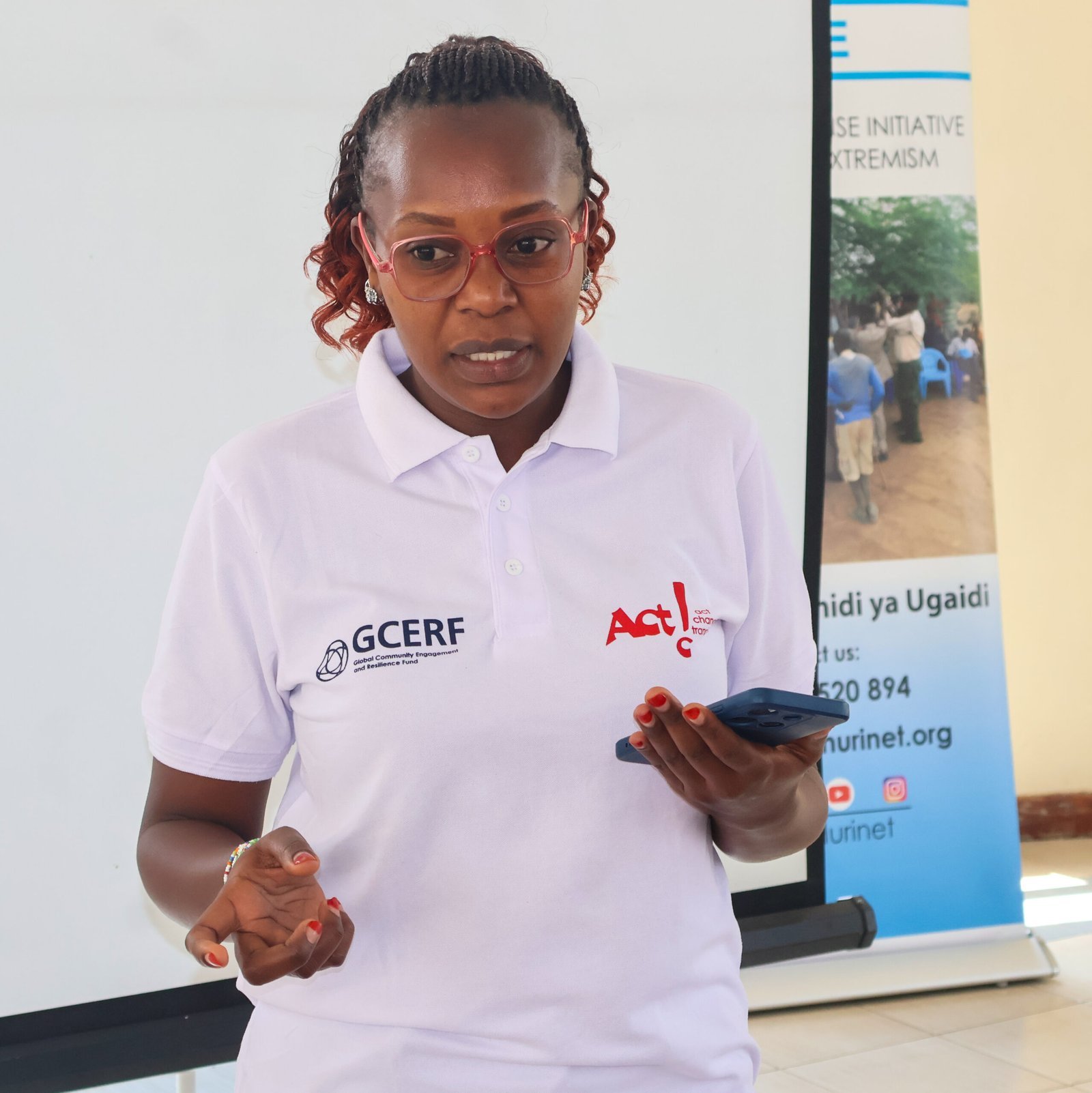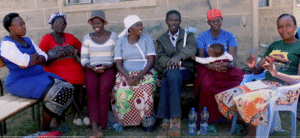
Schools surrounded by informal settlements experience the effects of vulnerabilities caused by various factors.
PCVE vulnerabilities are multi-faceted and often arise from socioeconomic, political, social, psychological, educational, environmental, technological, communal, and global factors.
Addressing these vulnerabilities requires a holistic approach that considers the complex interplay of these elements.
This approach focuses on prevention through community engagement, education, economic opportunities, and promoting inclusive and equitable societies.
Effective PCVE strategies must be context-specific and involve collaboration among governments, civil society, and international organizations to create resilient communities capable of resisting extremist influences.
Hellen Wangari Ngige, a teacher at Kimathi Secondary School, has continuously been capacity strengthened by MIDRIFT HURINET and the National Counter Terrorism Centre (NCTC) through the Accelerated Response Initiative against Violent Extremism (ARIVE) program on mainstreaming PCVE as she undertakes her duties as a teacher.
She is the Education Pillar Co-Chair in the Nakuru County Engagement Forum (CEF) on PCVE.
Global Community Engagement and Resilient Fund (GCERF) supports the program through Act Change Transform (ACT).
Kimathi Secondary School is in Flamingo Ward of Nakuru Town East Sub County.
It is surrounded by the Lakeview, Flamingo, and Kivumbini areas, which are mostly affected by high crime rates and the sale of illicit liquors.
Family systems in these areas are mostly broken. Children are cared for by either their grandparents, one parent, or both parents, but one has abdicated their parental roles.
Faced with these dynamics but armed with the knowledge and Information from the capacity-bridging forums, Mwalimu Hellen formed a Peace Club in her School to address PCVE among the students. She also serves as the club’s Patron.
Peace clubs are community-based groups or organizations that often promote peace, tolerance, and non-violence among youth.
These clubs provide a platform for individuals to engage in activities that foster understanding, conflict resolution, and social cohesion.
They play a significant role in preventing and countering violent extremism (PCVE) by addressing the root causes of violence and radicalization through education, dialogue, and community engagement.
Peace clubs play a vital role in preventing and countering violent extremism by fostering a culture of peace, tolerance, and non-violence.
They address the root causes of radicalization and build resilient communities through education, community engagement, and empowerment.
By promoting positive narratives and providing constructive alternatives, peace clubs contribute significantly to the efforts to combat violent extremism and create a more peaceful and inclusive society.
She narrated her journey in the formation of the Peace Club and the impact it has on Students.
“We have been having various issues in schools, and we have Peace Clubs that have been addressing these issues, including drug and substance abuse, and we have also had in the past conflicts between Schools propagated by competition and bullying.
Criminal gangs were recruiting learners in Schools since they don’t attract much scrutiny from Security Agencies, which offered a breeding ground for recruitment and radicalization.
This prompted us as teachers to create a safe learning environment where the learners could solve conflicts among themselves and acquire conflict resolution skills, which had the net effect of inculcating tolerance.
I was tasked with approaching MIDRIFT HURINET, which would be an ideal partner due to its projects in Peace and Security and would reinforce what we were doing to help the learners avoid falling prey to radicalizers and criminal elements.
The interaction was successful, and they further extended it to three other Schools in Nakuru Town East and Nakuru Town West Sub Counties, i.e., Nakuru West Secondary, Nakuru Central Secondary, and Kivumbini Secondary Schools.
We were trained on PCVE, how to identify students vulnerable and prone to radicalization, and how to handle such situations while leveraging the
counter-narratives we had developed.
MIDRIFT HURINET has also been making continuous visits and sensitization to our schools and taking the teachers through emerging issues on PCVE, Gender Based Violence as a component of PCVE, and students on the dangers of getting themselves in radical outfits.
Addressing GBV is integral to PCVE efforts as it directly impacts the dynamics of radicalization and extremism. By tackling GBV, we can disrupt the cycle of violence, empower Youth and Students as agents of change, and create more resilient and inclusive communities.
This approach enhances the effectiveness of PCVE strategies and promotes broader social justice and human rights, contributing to sustainable peace and security.
Through the Peace Clubs, students have been able to open up on issues affecting them in schools & their Mental Health awareness, Peace & Security situations within their communities, improvement in their academic performance & self-awareness, tolerance amongst themselves through the knowledge imparted to them on conflict resolution skills in schools, improvement in their leadership roles, and vulnerabilities in their families & communities that are making them an easy target for criminal gang members.
Partnerships with the guidance and Counselling departments in the various schools have also addressed their emotional and social development.
The students display a positive school culture that has been taught to them, such as kindness, cooperation, and mutual respect, which are valued and practiced.
I thank MIDRIFT HURINET for their support in these interventions and request that we train more teachers on PCVE in the future.
A comprehensive approach involving institutional support, capacity building, engaging activities, partnerships, technology, evaluation, recognition, inclusivity, and sustainability is essential to make peace clubs in schools more proactive.
By implementing these strategies, peace clubs can effectively create a peaceful and supportive school environment, empowering students to be agents of change in their communities and beyond.”
JAMII THABITI DHIDI YA ITIKADI KALI
By
Jacob Karani


